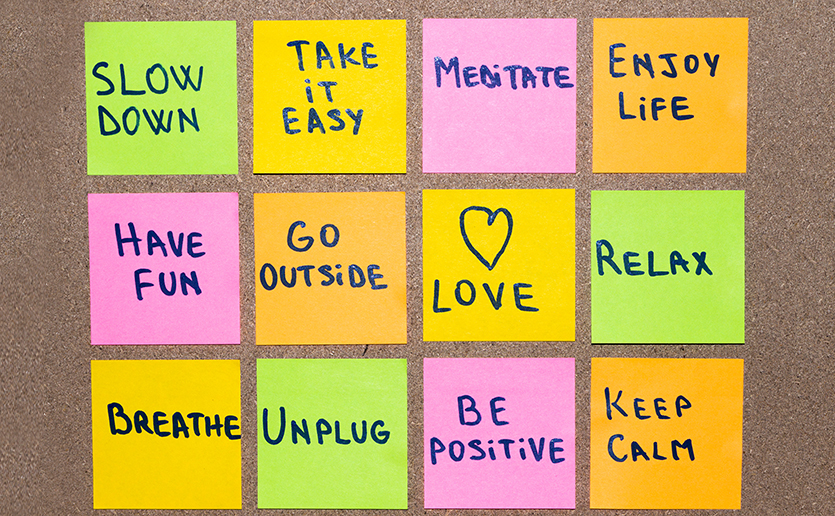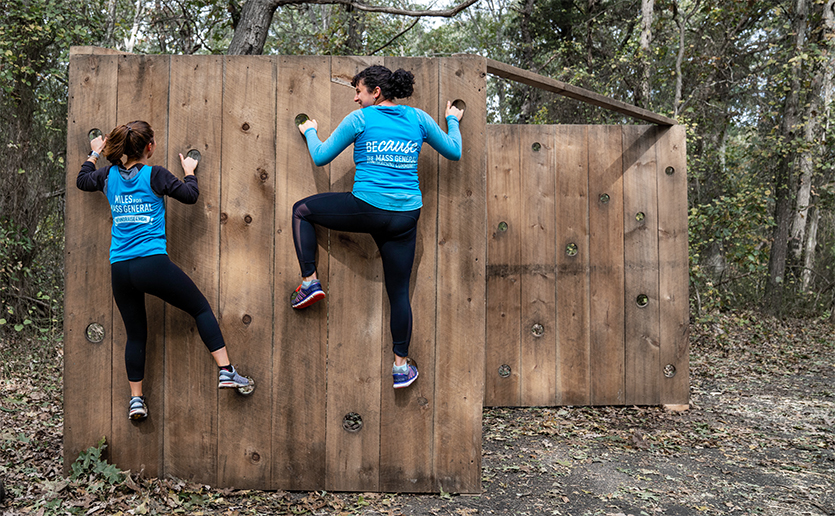While walking may just seem like a necessary part of your day-to-day life, finding time for extra steps throughout the day actually can have major health benefits.
According to Michelle Boutet, RDN, CSSD, LD, senior clinical nutritionist at the Concierge Medicine practice at Massachusetts General Hospital, walking can burn calories, reduce stress, improve blood sugar, boost your energy and mood and improve your immune system. The health benefits from walking — along with other moderate movement that isn’t part of an exercise routine — can add up exponentially.
Ms. Boutet recommends setting movement goals for yourself, as tracking can be a great motivator …
Walking and the NEAT Method
The scientific concept is known as NEAT, or non-exercise activity thermogenesis, and it refers to the benefits of any extra movement that you manage to squeeze into your day. This includes walking, cleaning, fidgeting, typing, cooking and any other energy you expend through things that are not eating, sleeping or exercise. Even though these tasks might seem trivial, consistency is key. Even the smallest increase in movement leads to improvements in general health and well-being over time.
And when you’re ready to take things to the next level, using benchmarks and setting goals are still helpful ways to monitor improvements in health. Ms. Boutet recommends setting movement goals for yourself, as tracking can be a great motivator for individuals looking to push themselves to be healthier.
Do You Need 10,000 Steps?
You may have heard that you should strive for 10,000 steps per day to be “healthy.” But Ms. Boutet says that 10,000 is not a magic number. In fact, the idea of 10,000 steps originated with a marketing strategy in Japan to sell pedometers.

Ten thousand steps is equivalent to about five miles, which might sound intimidating to some people. But, the general recommendation is to try to find 150 minutes for moderate activity each week. And, the more you can spread this movement throughout the week, the more the health benefits can add up. Maybe that means you plan for seven 10-minute walks and four 20-minute walks in a week. Or, instead you might try two hour-long walks and a 30-minute walk. Your goal should really depend on your fitness background and your baseline, so it could be more or less than 150 minutes, depending on your doctor’s recommendation.
Find Your Baseline
In order to find your baseline, Ms. Boutet recommends using a pedometer (or a phone that can track daily steps) and measuring how many steps you take each day for a couple of days without making any adjustments. If you don’t have a device that can measure your current step count, try keeping track of how much time you spend walking each day (30 minutes = around 4,000 steps or two miles on average). Knowing how many steps you are taking now will help you to set your goals for the future.
A simple goal for starters would be to increase your step count about 1,000 steps every day, each week.
A simple goal for starters would be to increase your step count about 1,000 steps every day, each week. For example, if you measure that you currently walk around 2,000 steps per day, try walking 3,000 steps per day for the next week, and then increase to 4,000 steps per day the following week and so on until you hit your end goal.
Ms. Boutet says that increasing your current count by just 2,000 steps per day has been proven to improve your overall health. So don’t stress if you’re not able to get to 10,000 steps right away.
Walking and Motivation
If tracking and recording your step count doesn’t motivate you to get moving, there are lots of other ways to stay motivated to move. Try involving the whole family and go on walks together. Maybe start a friendly competition among your friends or coworkers to push everyone to move a little bit more. Even better, use this time to focus on yourself, listen to your favorite music or a new podcast and decompress from the day.
Ms. Boutet also shared some simple and effective ways to add more steps into your daily routine:
- Park farther away: If you park at the back of the parking lot, it will mean more steps on the way in and more steps on the way out — a win-win
- Take the stairs: If you don’t always need to use the elevator or escalator, try walking up the stairs instead. Or you could find other ways to use the stairs during the day, like traveling to a different floor to use the restroom at work
- Take a lunch walk: Take a break. Go outside and take a 10-minute walk. Everyone could use a little extra energy and vitamin D in the middle of the workday
- Make walking part of your commute: If you take public transport to work, try incorporating extra steps into your daily commute by hoping off a stop early and walking the remaining distance. Or maybe walk to the train station instead of driving if that’s an option.






